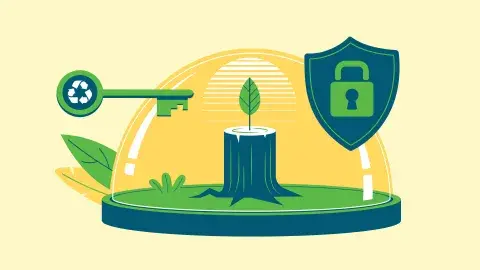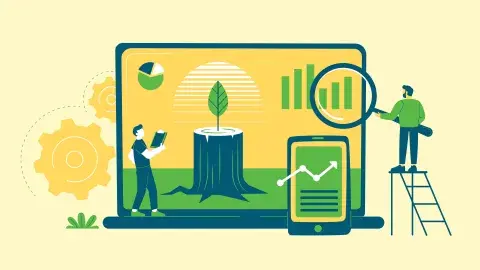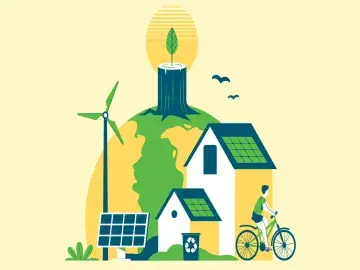Faith and Sustainable Lifestyles
It is increasingly recognised that faith leaders and faith-based organizations (FBOs) are essential contributors towards attaining the Sustainable Development Goals (SDGs) and addressing environmental and climatic crises. Acknowledging this, the United Nations Environment Programme (UNEP) launched the Faith for Earth Initiative to strategically engage with FBOs, mobilise greater faith-inspired environmental action, scale-up faith actors’ capacities and catalyse greater synergies between them and other stakeholders. This short, self-paced, e-learning course, focusing on sustainable lifestyles, forms part of this commitment.
Humans are overexploiting natural resources in order to satisfy their needs and wants, often overlooking or not understanding the damage being caused. This behaviour, tied into dominant socioeconomic systems, is having a devastating effect on our planet, with widespread environmental degradation occurring globally. It is imperative that people adopt more sustainable lifestyles to reduce both individuals’ and society’s use of natural resources to minimise our collective environmental footprint (bearing in mind that this responsibility is not shared equally). Fully addressing this issuee requires the engagement of all sectors of society, with this course focusing on the role of faith actors, drawing on the particular qualities and comparative advantages they have.
KAICIID launched the FAITH4SDGS Project. More information and material can be found here: https://www.kaiciid.org/content/sustainable-development-goals-sdgs
This course is designed for religious leaders, faith-based organizations, civil society, non-governmental organizations, UN agencies, other multilateral institutions, government officials, policy and decision-makers and individuals interested in this subject. Whilst the focus is on faith actors, faith perspectives and faith-led action, this course seeks to contribute to building synergies amongst different stakeholders, highlighting the value of engaging with faith actors in addressing this challenge.
The goals of this course are to:
- Build the capacities of faith actors and outline the linkages between faith and lifestyles, demonstrating the roles faith can play in addressing the issue.
- Have participants end the course with a better understanding of how they can reduce their environmental impact and carbon footprint.
- Help contribute to the attainment of SDG 12 – Responsible Consumption and Production – as well as SDGs 10, 11 and 13.
At the end of this course, participants will:
- Understand how unsustainable consumption patterns and lifestyles are driving climate change and causing immense environmental degradation around the world.
- Have knowledge of different ways and strategies to address unsustainable lifestyles and reduce environmental footprints, with emphasis on the role of the UN system.
- Recognise different faith perspectives on living in moderation, avoiding greed and excess, and how these principles can be embraced to reduce environmental footprints.
- Have seen examples of faith-led initiatives addressing the issue, where inspiration can be drawn.
- Have guidelines, resources, and strategies for faith actors to reduce, and inspire others to reduce, their consumer habits and live more sustainably
Since its inception in 1972, the United Nations Environment Programme (UNEP) has been the global authority that sets the environmental agenda, promotes the coherent implementation of the environmental dimension of sustainable development within the United Nations system and serves as an authoritative advocate for the global environment. UNEP’s mission is to provide leadership and encourage partnerships in caring for the environment by inspiring, informing, and enabling nations and peoples to improve their quality of life without compromising that of future generations. UNEP works closely with its 193 Member States and representatives from civil society, businesses, and other major groups and stakeholders to address environmental challenges through the UN Environment Assembly, the world’s highest-level decision-making body on the environment.
This interactive digital course is specifically designed for busy professionals who do not have time to take the longer, moderated eight-module course on ‘Faith, Environment and Climate Change’. They can now select the relevant thematic topics and modules and learn on the go. Administered through a Massive Open Online Course (MOOC) platform, this short course takes around two hours to complete and can be taken anywhere, anytime, at a pace that suits and from a phone or a computer.
Modern and updated browsers.
A Certificate of Completion will be issued to participants who achieve a minimum total score of 70%.
E-Learning in IRD designed for the general public


